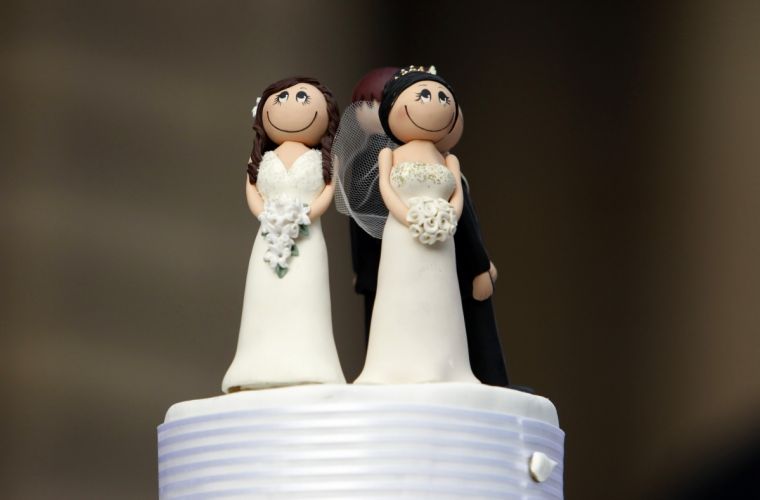British Baptists and same-sex marriage: Can the denomination hold it together?

Last week the Council of the Baptist Union of Great Britain (BUGB) issued a statement on same-sex marriage that was accompanied by a heartfelt plea for denominational unity from the general secretary, Rev Lynn Green.
It may be needed. So far Baptists have, in general, escaped the civil war that has created mayhem in the Anglican communion and seen the United Reformed Church conclude it was unable to reach a consensus on the issue.
But the statement last week revealed a fundamental tension at the heart of Baptist life which has very little to do with same-sex marriage and everything to do with how the denomination works – and it will not resolve the issue.
The statement, emailed to ministers and church secretaries on Friday, stressed the independence of the local congregation – part of the BUGB 'Declaration of Principle' – but under the heading 'Walking together in Unity' said that "recognising the costs involved and after careful and prayerful reflection and listening, we humbly urge churches who are considering conducting same-sex marriages to refrain from doing so out of mutual respect".
Behind this statement lies a world of theological pain. Where, ask the critics, is the respect for those who don't think it's wrong to conduct same-sex marriages? Where, ask those who think this doesn't go nearly far enough, is the clarion call to Gospel fidelity?
At this point, no one would envy those charged with keeping the denominational show on the road. However, it's important to understand the dynamics behind what has been agreed.
First, it reflects pressure from a number – probably a relatively small number – of activists who regard gay marriage as a litmus test for theological orthodoxy and biblical fidelity. They have got some of what they want. The fact BUGB Council has felt obliged to state a position on this is a victory of sorts for them. It may persuade those forecasting a break-up of the Union that they can with integrity stay within it.
Second, it is a corresponding blow to those who those whose thinking has led them to a different conclusion. It puts them outside mainstream Baptist life. It sets them in direct opposition to the appeal of the Council and the general secretary. It makes them rebels against the Union, when that is not what they want. In referring to "our Union's historic Biblical understanding of marriage" (repeating a phrase from 2014) it even implicitly says they are being 'unbiblical', which is, to say the least, a heavy charge. They are just interpreting the Bible differently. That's a phrase that, in the spirit of 'mutual respect', should have been excised.
Third, not all conservatives are on one side. Some who are opposed to same-sex marriage also argue it is fundamentally un-Baptist to attempt to lay down the law for churches about what they can do or believe. Green referred to this in her covering letter, when she admitted concerns were expressed that "having a statement is not an authentic expression of our Baptist way of being church".
Fourth, the rules have not changed since the previous statement in May 2014, when the Assembly admitted through gritted teeth that churches wanting to register for same-sex marriages could do so and that ministers ought to be able to conduct them if they want. But it remains the case that "homosexual genital practice is to be regarded as conduct unbecoming" for ministers; so we can conduct same-sex marriages, but we can't enter into them ourselves. So nothing, in fact, has altered about what churches and ministers can and can't do.
Fifth, this reflects the irresolvable tension between being a national denomination setting standards – including moral standards – for its ministers, and a congregationally-governed federation of independent churches which can do what they like. So ministers can conduct a gay wedding for someone else, but can't themselves marry a person of the same gender. The real earthquake would come if BUGB decided to alter that one small clause in its Ministerial Recognition Rules (Appendix 3, 5.1.2). There is, on the evidence of the debate so far, no chance that this will happen.
Full disclosure: personally, I haven't found convincing theological grounds for conducting a same-sex marriage. The arguments in favour seem too convenient and insufficiently rigorous. Variations on 'it's the loving thing to do' don't work for me.
On the other hand – and I realise the passion the issue arouses among many conservative Christians – it's self-evident to me that this is one of the 'adiaphora' or 'indifferent things' on which Christians can legitimately disagree. I believe to try to make it part of the definition of orthodoxy, on a level with belief in the Trinity, is entirely wrong. Some people genuinely reach different conclusions from me about how to interpret the Bible, and I have to respect that.
In theory – though there is still that niggling but inescapable problem of the Ministerial Recognition Rules – Baptist ecclesiology ought to be able to handle that sort of variety among its churches. It's a mark of the power of the anti gay marriage lobby that the Council has been forced to take the position it has. It would, I think, have been better to have said nothing at all. Given that something had to be said, this is not the worst possible outcome. But it has laid a heavy burden on dissenting churches and it has not settled the issue.
Follow Mark Woods on Twitter: @RevMarkWoods











